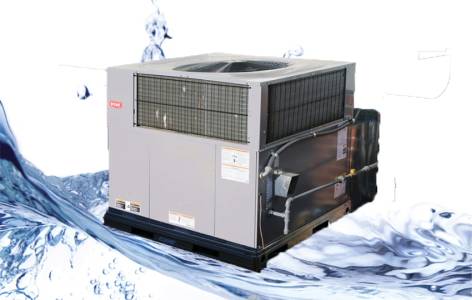Description
Conquer Comfort: Your Ultimate Guide to HVAC Systems
Maintaining a comfortable indoor climate is crucial for health, productivity, and overall well-being. That's where a reliable HVAC (Heating, Ventilation, and Air Conditioning) system comes in. This comprehensive guide explores the world of HVAC, helping you understand its importance, different types, and how to choose the perfect system for your needs.
What is HVAC?
HVAC systems are responsible for controlling the temperature, humidity, and air quality within a building. This encompasses three key functions:
- Heating: Providing warmth during colder months, using various methods like furnaces, heat pumps, or boilers.
- Ventilation: Circulating fresh air and removing stale or polluted air, ensuring proper indoor air quality. This often involves air filters and exhaust systems.
- Air Conditioning: Cooling the air during warmer months, using refrigerants to lower the temperature and remove excess humidity.
Types of HVAC Systems:
Choosing the right system depends on several factors, including building size, climate, budget, and energy efficiency preferences. Popular options include:
- Furnaces: Traditional heating systems that burn fuel (natural gas, propane, or oil) to generate heat. They are typically paired with a separate air conditioner.
- Heat Pumps: Highly efficient systems that can both heat and cool your home. They transfer heat rather than generating it, making them a more environmentally friendly option. Types include air-source and geothermal heat pumps.
- Air Conditioners: Standalone cooling systems that remove heat and humidity from the air. These can be window units, split systems, or part of a central HVAC system.
- Packaged Units: Combine heating and cooling components in a single outdoor unit, simplifying installation and maintenance.
- Geothermal Systems: Utilize the stable temperature of the earth to provide both heating and cooling, offering exceptional energy efficiency.
Key Considerations When Choosing an HVAC System:
- SEER Rating (Seasonal Energy Efficiency Ratio): Indicates how efficiently an air conditioner cools your home. Higher SEER ratings mean lower energy bills.
- HSPF Rating (Heating Seasonal Performance Factor): Measures the efficiency of a heat pump's heating capabilities. Higher HSPF ratings indicate better performance.
- Energy Star Certification: Indicates that the system meets stringent energy efficiency guidelines.
- System Size: Proper sizing is critical for optimal performance and energy efficiency. An undersized system will struggle to maintain comfort, while an oversized system will cycle on and off frequently, reducing efficiency and lifespan.
- Maintenance: Regular maintenance, including filter changes and professional inspections, is crucial for optimal performance, extended lifespan, and warranty protection.
Beyond the Basics:
Modern HVAC systems often incorporate smart features such as:
- Smart Thermostats: Allow for remote control and programming, optimizing energy usage and comfort.
- Zoned HVAC: Provides customized temperature control for different areas of a building.
- Air Purifiers: Remove airborne pollutants, allergens, and other contaminants for improved indoor air quality.
Investing in a reliable HVAC system is an investment in your comfort and well-being. By understanding the various options and factors to consider, you can choose the perfect system to create a healthy and comfortable environment for years to come.
